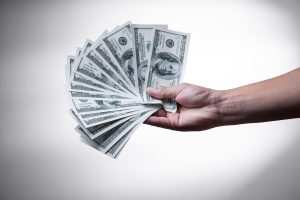Forex, short for foreign exchange, is the buying and selling of currencies. It is the largest and most liquid market in the world, with an estimated daily turnover of $5.3 trillion. Unfortunately, with such a large market comes the risk of scams. Forex scams are schemes designed to deceive investors by promising high returns with little or no risk. In this article, we will explore what forex scams are, how they work, and how to avoid them.
Forex scams come in many forms, but they all have one thing in common: they promise to make you rich quickly and easily. These scams are often promoted through social media, email, or online advertisements. They use persuasive language and false claims to entice unsuspecting investors to deposit money into an account.
One common forex scam is the Ponzi scheme. In this type of scam, the fraudster promises high returns on investment and uses the money from new investors to pay off earlier investors. The scheme continues until the fraudster runs out of new investors or the authorities catch up with them. Ponzi schemes are illegal and can result in criminal charges.
Another type of forex scam is the pyramid scheme. In this type of scam, investors are asked to recruit others to join the scheme. The investors are promised high returns for recruiting new members, but the scheme eventually collapses when there are no more new members to recruit.
Forex trading robots are another common scam. These software programs claim to be able to trade on your behalf and generate high profits. However, many of these robots are not effective and can result in significant losses for investors.
Forex signal scams are also prevalent. These scams involve a person or company offering to provide trading signals to investors. The signals are supposed to indicate when to buy or sell a currency pair. However, many of these signals are not accurate and can result in losses.
Fraudulent forex brokers are another common type of scam. These brokers promise low spreads and high leverage, but they do not have the necessary licenses to operate. Investors who deposit money with these brokers risk losing their entire investment.
So, how do you avoid forex scams? The first step is to do your research. Check the broker’s credentials and read reviews from other investors. If something seems too good to be true, it probably is. Be wary of promises of high returns with little or no risk.
Another way to avoid forex scams is to only work with regulated brokers. Regulated brokers are licensed and monitored by regulatory authorities, and they must adhere to strict rules and regulations. This ensures that your money is safe and that you are working with a reputable broker.
In conclusion, forex scams are a significant risk for investors. These scams come in many forms, but they all promise high returns with little or no risk. To avoid these scams, do your research, work with regulated brokers, and be wary of promises of quick and easy profits. Remember, if something seems too good to be true, it probably is.






